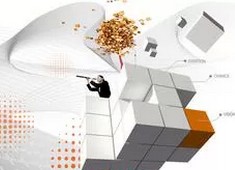Title: Understanding Collaborative Projects with the National Natural Science Foundation
The National Natural Science Foundation of China (NSFC) plays a vital role in funding scientific research and fostering collaboration within the scientific community. One of its key branches, the Cooperative Projects Department, facilitates collaborative efforts among researchers, institutions, and industries. Understanding the workings of the Cooperative Projects Department is crucial for those seeking funding and support for their research endeavors.
Overview of the Cooperative Projects Department
The Cooperative Projects Department of the National Natural Science Foundation focuses on fostering collaboration in research across various disciplines. Its primary objectives include:
1.
Promoting Collaboration
: The department aims to encourage collaboration among researchers, institutions, and industries to address scientific challenges effectively.
2.
Facilitating Funding
: It provides financial support to collaborative research projects that demonstrate potential for significant scientific contributions.
3.
Ensuring Quality
: The department ensures that funded projects meet rigorous scientific standards and have the potential for impactful outcomes.
Key Components of Collaborative Projects
Collaborative projects supported by the NSFC typically involve several key components:
1.
Interdisciplinary Research
: Many collaborative projects span multiple disciplines, fostering innovation at the intersection of different fields.
2.
MultiInstitutional Collaboration
: Projects often involve collaboration among researchers from multiple institutions, promoting knowledge exchange and resource sharing.
3.
Industry Partnership
: In some cases, collaborative projects may also involve partnerships with industry stakeholders, facilitating technology transfer and commercialization of research outcomes.
Application and Evaluation Process
The process of applying for and evaluating collaborative projects with the NSFC follows a structured framework:
1.
Project Proposal Submission
: Researchers and institutions interested in collaborative projects submit detailed project proposals outlining the research objectives, methodology, expected outcomes, and budgetary requirements.
2.
Peer Review Process
: Submitted proposals undergo rigorous peer review by experts in the relevant fields to assess scientific merit, feasibility, and potential impact.
3.
Evaluation Criteria
: The evaluation criteria include scientific significance, innovation, feasibility, interdisciplinary nature, and potential for collaboration and knowledge exchange.
4.
Decision and Funding
: Based on the peer review outcomes, the Cooperative Projects Department makes funding decisions, prioritizing projects with high scientific merit and collaborative potential.
Best Practices and Recommendations

For researchers and institutions seeking to engage in collaborative projects with the NSFC, several best practices can enhance the likelihood of success:
1.
Identify Strategic Partnerships
: Seek out partners from complementary disciplines and institutions with a track record of excellence in research and collaboration.
2.
Clearly Define Objectives
: Clearly articulate the research objectives, methodology, and expected outcomes in the project proposal to demonstrate scientific rigor and feasibility.
3.
Emphasize Interdisciplinarity
: Highlight the interdisciplinary nature of the research and its potential to address complex scientific challenges through collaboration across disciplines.
4.
Engage Industry Partners
: Where applicable, involve industry partners early in the project planning process to ensure alignment with industry needs and opportunities for technology transfer.
5.
Address Ethical and Compliance Considerations
: Ensure that the research design and implementation adhere to ethical standards and regulatory requirements, addressing any potential ethical or compliance issues proactively.
6.
Plan for Sustainability
: Consider the longterm sustainability of collaborative efforts beyond the duration of the funded project, including strategies for continued collaboration, funding, and impact dissemination.
Conclusion
Collaborative projects facilitated by the Cooperative Projects Department of the National Natural Science Foundation offer valuable opportunities for researchers, institutions, and industries to address scientific challenges collectively. By understanding the key components of collaborative projects, navigating the application and evaluation process, and adopting best practices, stakeholders can maximize the impact and success of their collaborative research endeavors.





